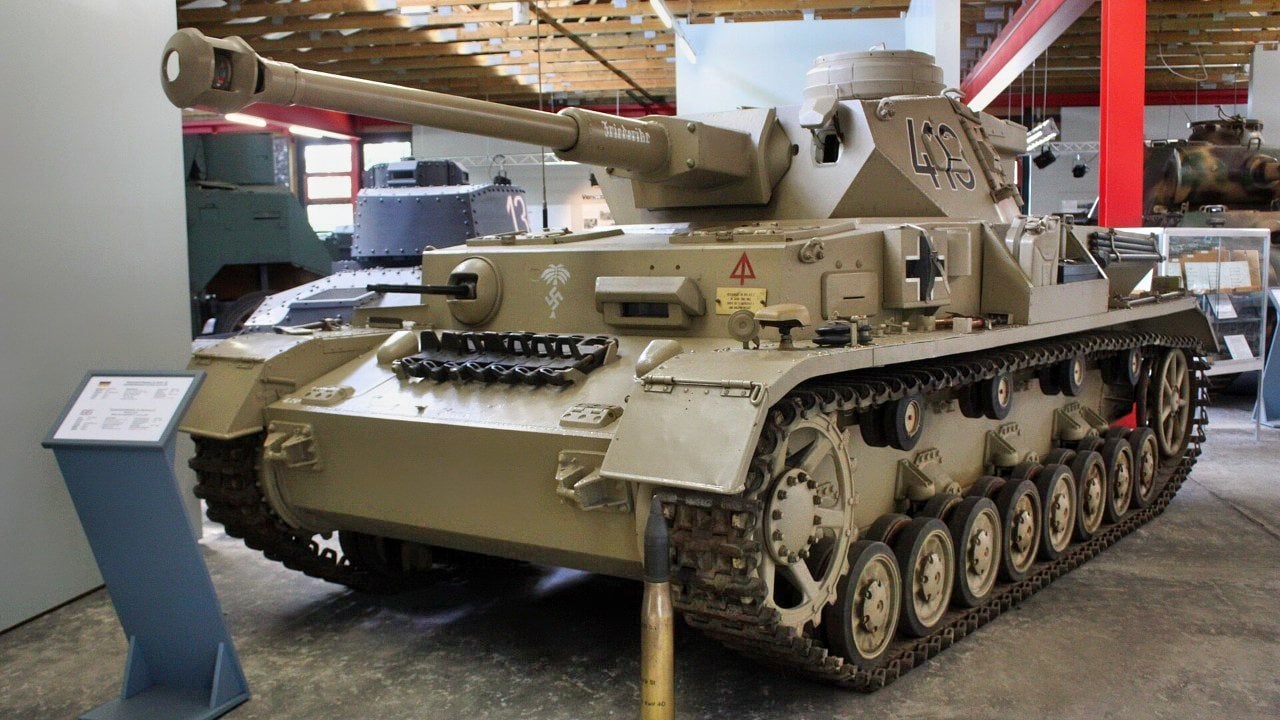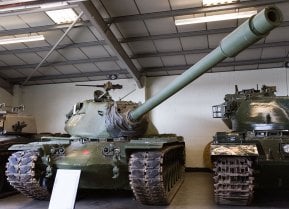Donald Trump Is Wrong. Hitler’s Generals Were Failures
For someone who considers himself a winner in business and politics, Donald Trump’s admiration for Hitler’s generals is peculiar. Why admire soldiers who lost the biggest war in history?
For someone who considers himself a winner in business and politics, Donald Trump’s admiration for Hitler’s generals is peculiar. Why admire soldiers who lost the biggest war in history?
“I need the kind of generals that Hitler had,” Trump reportedly said during his final days in the White House, according to The Atlantic. “People who were totally loyal to him, that follow orders.” To Trump, such loyalty would include a willingness – or perhaps an eagerness – by the U.S. military to use force against what Trump terms “the enemy from within.”
America’s generals opposed then-President Trump’s threat to deploy troops in American cities during the George Floyd protests in 2020, and they would certainly oppose such a move now. Perhaps that’s why Trump has called those who serve in the U.S. military “losers.”
Donald Trump and History
But the real losers were Hitler’s generals. Not only was the Third Reich ultimately defeated on the battlefield, but Germany was devastated, occupied by foreign armies, and even divided into two nations that would not be reunited for 45 years.
To call Hitler’s generals unconditionally obedient is false. In 1944, a few German officers nearly succeeded in assassinating Hitler. Privately, senior German generals – many of whom were Prussian aristocrats – sneered at Hitler, a World War I veteran of humble Austrian origin whom they dismissed as the “Bohemian corporal.” Given Trump’s contempt for the military, such as dismissing dead American soldiers as “suckers,” they probably wouldn’t have thought much of him, either.
However, even more troubling is Trump’s disregard for military success. He seems to believe the post-World War II mythology of German military prowess. Some historians even mathematically calculated that a German soldier was worth 50 percent more than their Allied counterparts. Eager for tips on how to defeat the Soviet Union, Western governments and military buffs swallowed the self-serving memoirs of German commanders whose mantra was, “we would have won if only Hitler had listened to me.”
In fact, the German military did display remarkable skill and stamina. Despite being outnumbered by the combined forces of the Soviet Union, United States, Britain, and other nations, the Third Reich came perilously close to winning the war. On the battlefield, German forces often proved more agile, adaptable, and resilient than their enemies.
Mistake After Mistake
But Hitler’s military is proof that a nation can win battles and still lose a war. In particular, Operation Barbarossa, the massive German invasion of Russia in June 1941, began with stunning victories and an advance to the gates of Moscow. It ended four years later with Soviet tanks in Berlin.
After the war, German commanders blamed the failure to defeat Russia on Hitler’s meddling in military matters. Heinz Guderian, a pioneer of blitzkrieg warfare, complained in his memoirs that the Fuhrer was responsible for “our first decisive defeat on the battlefields before Moscow. Hitler's strategy, lacking in consistency, and subject to continual vacillation in its execution, had crashed.”
But Hitler’s generals were equally responsible for the fiasco. Imbued with racial arrogance, the German high command assumed that the “inferior” Slavs would quickly collapse in the face of the German might. Thus, they tried to seize too much territory too quickly and badly underestimated the size of Russia’s military and its ability to replace staggering losses in equipment and manpower. Most importantly, they neglected to provide adequate supplies and transport, which caused the panzer divisions to quickly run out of gas and ammunition.

“Operations consists of more than the ability to maneuver forces on the battlefield,” wrote historian Geoffrey Megargee in his book “Inside Hitler’s High Command.” “To be effective operationally, an army must be able to figure out what its enemies are doing, disguise its own intentions, and keep its formations properly manned and supplied. In these respects the Germans proved themselves to be woefully inadequate.”
History Informs The Present
This should serve as a warning for today’s militaries. The conflicts in Ukraine and the Middle East suggest that the key to modern warfare is not only tactical wizardry but also ensuring adequate stocks of missiles, drones, and artillery shells.
However, Hitler’s generals proved more than strategic bumblers. They were moral cowards who didn’t oppose – and often supported – Hitler’s plans to wage aggressive war, a choice made easier when the Fuhrer rewarded them with lavish bribes of cash and land. They claimed after the war that it was only their military oath – pledged to the Fuhrer rather than the German nation – that compelled them to fight on even when all hope of victory had evaporated. But that doesn’t explain their willingness to implement orders to exterminate Jews and Communists.
Ultimately, Hitler’s generals failed to win their war and failed to stop Germany from plunging into catastrophe and atrocity. They should not be a role model for America.
About the Author: Michael Peck
Michael Peck is a defense writer whose work has appeared in Business Insider, Forbes, Defense News, Foreign Policy magazine, and other publications. He holds an MA in political science from Rutgers Univ. Follow him on Twitter and LinkedIn.
Image Credit: Creative Commons.


